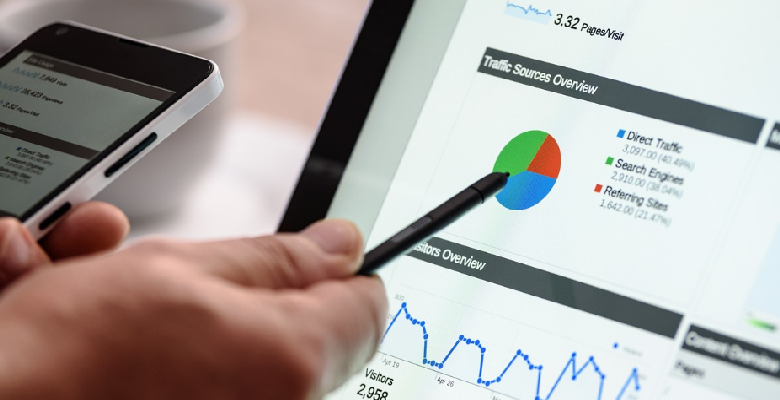In the dynamic world of finance and economics, staying ahead of the curve is paramount for investors, businesses, and individuals alike. The American economy, as one of the largest and most influential globally, is subject to a myriad of factors that can shape its trajectory. From policy changes and technological advancements to global events, understanding the market movers is crucial for making informed decisions. This article delves into the key influences that are currently shaping the American economy and emphasizes the importance of staying updated on these dynamic forces.
-
Policy and Legislative Changes:
One of the most significant factors influencing the American economy is the ever-changing landscape of policies and legislation. Decisions made by policymakers, whether at the federal or state level, have far-reaching consequences. Changes in tax laws, trade policies, and regulatory frameworks can impact businesses, investors, and consumers. Staying abreast of these policy shifts provides valuable insights into potential economic trends and investment opportunities.
-
Technological Innovations:
In the 21st century, technological advancements play a pivotal role in shaping economic landscapes. The rapid evolution of technology affects industries across the board, from manufacturing to finance. The rise of artificial intelligence, blockchain, and renewable energy technologies, among others, not only disrupts traditional business models but also creates new opportunities for growth. Keeping a keen eye on technological innovations helps individuals and businesses anticipate shifts in demand and adapt to emerging trends.
-
Global Economic Trends:
In an interconnected world, the American economy is influenced by global economic trends. International trade, geopolitical events, and economic developments in major economies impact the United States. For instance, trade tensions between major economic powers, fluctuations in currency exchange rates, and global supply chain disruptions can have cascading effects on American businesses and consumers. Understanding these global dynamics is essential for making informed decisions in an increasingly interconnected global economy.
-
Consumer Behavior and Preferences:
The American economy is significantly shaped by consumer behavior and preferences. Changes in consumer spending patterns, lifestyle choices, and purchasing preferences can have a profound impact on various industries. Monitoring trends in consumer behavior helps businesses tailor their products and services to meet evolving demands, ensuring relevance and competitiveness in the market.
-
Environmental and Social Responsibility:
The growing emphasis on environmental and social responsibility is transforming business practices and influencing investment decisions. From sustainable business models to ethical investing, the focus on environmental, social, and governance (ESG) factors is reshaping the corporate landscape. Companies that align with these values are not only meeting consumer expectations but are also often better positioned for long-term success. Recognizing the influence of ESG considerations is crucial for investors seeking both financial returns and positive societal impact.
-
Labor Market Dynamics:
The state of the labor market is a key indicator of economic health. Factors such as employment rates, wage growth, and workforce participation impact consumer spending, corporate profitability, and overall economic vitality. Changes in technology, automation, and remote work trends further influence the dynamics of the labor market. Staying informed about shifts in employment patterns provides valuable insights into broader economic trends.
-
Interest Rates and Monetary Policy:
The actions of central banks, particularly the Federal Reserve, have a profound impact on the American economy. Decisions related to interest rates and monetary policy influence borrowing costs, inflation rates, and overall economic stability. Investors closely monitor these policy decisions as they can have ripple effects across financial markets, impacting asset prices and investment returns.
-
Pandemic and Health Dynamics:
The COVID-19 pandemic has underscored the interconnectedness of health and the economy. Public health crises can disrupt supply chains, impact consumer confidence, and prompt changes in government policies. Staying updated on the latest developments in public health, including vaccination efforts and emerging variants, is crucial for anticipating potential economic ramifications and making informed decisions.
Conclusion:
In the fast-paced and interconnected world of finance and economics, staying updated on the market movers is not just advantageous—it’s essential. The American economy, with its complexity and resilience, is shaped by a multitude of factors that require constant monitoring and analysis. Whether it’s policy changes, technological innovations, global economic trends, or shifts in consumer behavior, each influence contributes to the intricate tapestry of the economic landscape.
Investors, businesses, and individuals who actively seek to understand and adapt to these market movers are better positioned to navigate the uncertainties and capitalize on opportunities. In an era where information is readily accessible, staying informed has never been easier. The ability to interpret and apply this information, however, remains a skill that can make the difference between financial success and missed opportunities. As we navigate the intricate web of influences shaping the American economy, the mantra remains clear: Stay updated, stay informed, and stay ahead.







